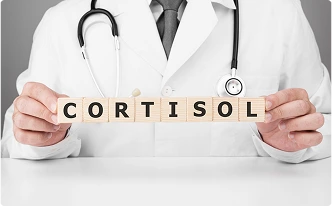Chronic pain is more than just a physical sensation. For the millions of people dealing with conditions like arthritis, fibromyalgia, or persistent back pain, it’s a constant companion that can disrupt sleep, work, and daily life.
But what many people overlook is the profound connection between mental health and chronic pain.
In fact, your mindset, emotions, and psychological well-being can significantly influence how you experience and recover from pain.
Let’s explore why caring for your mental health is just as important as treating the physical aspects of chronic pain and how the mind-body connection can be your strongest ally in recovery.
Understanding Chronic Pain
Chronic pain sticks around long after an injury has healed. Whether it’s lower back pain, arthritis, or fibromyalgia, it can impact every aspect of your life, your work, your sleep, even your relationships.
Moreover, here’s the tricky part: chronic pain doesn’t just hurt physically. It can trigger anxiety, depression, irritability, and fatigue, creating a vicious cycle where emotional stress makes pain worse, and pain worsens emotional stress.
This is why treating chronic pain isn’t just about taking medications or doing physiotherapy; it’s about addressing the mind-body connection.
How Your Mind Influences Pain
Pain is more than a signal from your body; it’s also a perception shaped by your brain. Stress, negative thoughts, and emotional tension can amplify how intense pain feels.
On the other hand, relaxation, mindfulness, and positive coping strategies can actually reduce the perception of pain.
Originally, “No pain, no gain” was never meant to encourage pushing through injury. Think about it: two people with the same condition can experience pain very differently.
One may feel debilitated, while the other continues daily activities with fewer limitations.
What's the difference? It often comes down to mental resilience and emotional well-being.
Psychological Challenges Linked to Chronic Pain
Chronic pain can trigger a range of mental health challenges:
- Depression and Low Mood: Constant discomfort can make everyday tasks overwhelming, leading to hopelessness.
- Anxiety and Worry: Fear of pain flares, disability, or future complications can increase stress, which in turn worsens pain perception.
- Sleep Disturbances: Pain often disrupts sleep, and poor sleep makes it harder for the body to manage pain effectively.
- Social Isolation: Avoiding activities and withdrawing from loved ones can lead to loneliness and emotional strain.
This cycle of physical pain and emotional distress can hinder recovery unless both aspects are addressed simultaneously.

How Mental Health Supports Recovery
Focusing on mental health can make a real difference in chronic pain management. Here’s how:
1. Cognitive Behavioral Therapy (CBT)
CBT helps you identify negative thought patterns and replace them with healthier, more constructive thinking.
by reframing how you perceive pain, you can reduce stress, anxiety, and even the intensity of pain itself.
2. Mindfulness and Meditation
Mindfulness encourages you to observe your pain without judgment.
Studies show that mindfulness-based practices can reduce pain perception, improve mood, and increase coping ability.
3. Stress Reduction Techniques
Chronic stress can worsen inflammation and pain. Techniques like deep breathing, progressive muscle relaxation, or yoga can calm the nervous system and help manage discomfort.
4. Building Emotional Resilience
Resilience isn’t about ignoring pain; it's about developing the mental tools to face it without letting it control your life.
Emotional resilience allows you to continue pursuing meaningful activities despite discomfort.
5. Social Support
Strong relationships provide emotional validation and practical assistance, both of which are critical for coping with chronic pain.
Support groups, friends, family, or online communities can reduce feelings of isolation and improve mental well-being.
Practical Tips for Supporting Mental Health During Pain Recovery
- Acknowledge Your Pain: Accepting that your pain is real, rather than dismissing or fighting it constantly, can reduce frustration and stress.
- Set Realistic Goals: Break tasks into manageable steps. Celebrate small wins instead of focusing solely on limitations.
- Stay Active: Gentle exercise, even if limited, can release endorphins — natural mood boosters that also reduce pain perception.
- Keep a Journal: Writing about your pain and emotions can help process feelings, track triggers, and notice progress over time.
- Seek Professional Help: Don’t hesitate to consult psychologists, counselors, or pain specialists who understand the link between mind and body.
Why a Holistic Approach Works
Recovery isn’t about eliminating all pain; it's about regaining control over your life.
Treating the body alone often leads to frustration. Combining physical therapy, medications, and mental health strategies creates a synergistic effect, improving coping, resilience, and overall quality of life.
Imagine a patient attending physiotherapy sessions, practicing mindfulness, and receiving therapy for emotional support.
Their body is healing, and their mind is learning to cope, adapt, and thrive despite ongoing pain. That’s the power of a holistic approach.
When to Seek Help
Persistent pain, sleep disturbances, mood changes, or withdrawal from social life are signals that professional support is needed.
Early intervention can prevent complications, provide coping strategies, and make long-term recovery smoother.
Why You Shouldn’t Ignore Joint Pain
Many people, especially fitness enthusiasts, tend to brush off joint pain as something that will “go away on its own.” Unfortunately, that’s not always the case.
Conclusion
Chronic pain isn’t just a battle your body fights; it's a challenge your mind faces every day.
True recovery isn’t about pushing through every ache; it’s about listening, adapting, and caring for both your body and your mind.
By nurturing your mental health, practicing resilience, and seeking support when needed, you transform pain from a roadblock into a stepping stone.
Remember: real strength isn’t enduring pain; it's learning to heal, adapt, and thrive despite it.
Latest News & Blogs

Debunking the Myths: Does ‘No Pain, No Gain’ Apply to Joint Injuries?
No Pain, No Gain: The Truth About Joint Injuries

Keeping Our Seniors Safe: Easy Home Safety Tips to Prevent Falls
Fall Prevention in Older Adults: Home Safety Tips

Understanding Cortisol and How Stress Affects Your Whole Body
The Role of Cortisol: How Stress Impacts Your Entire Body



